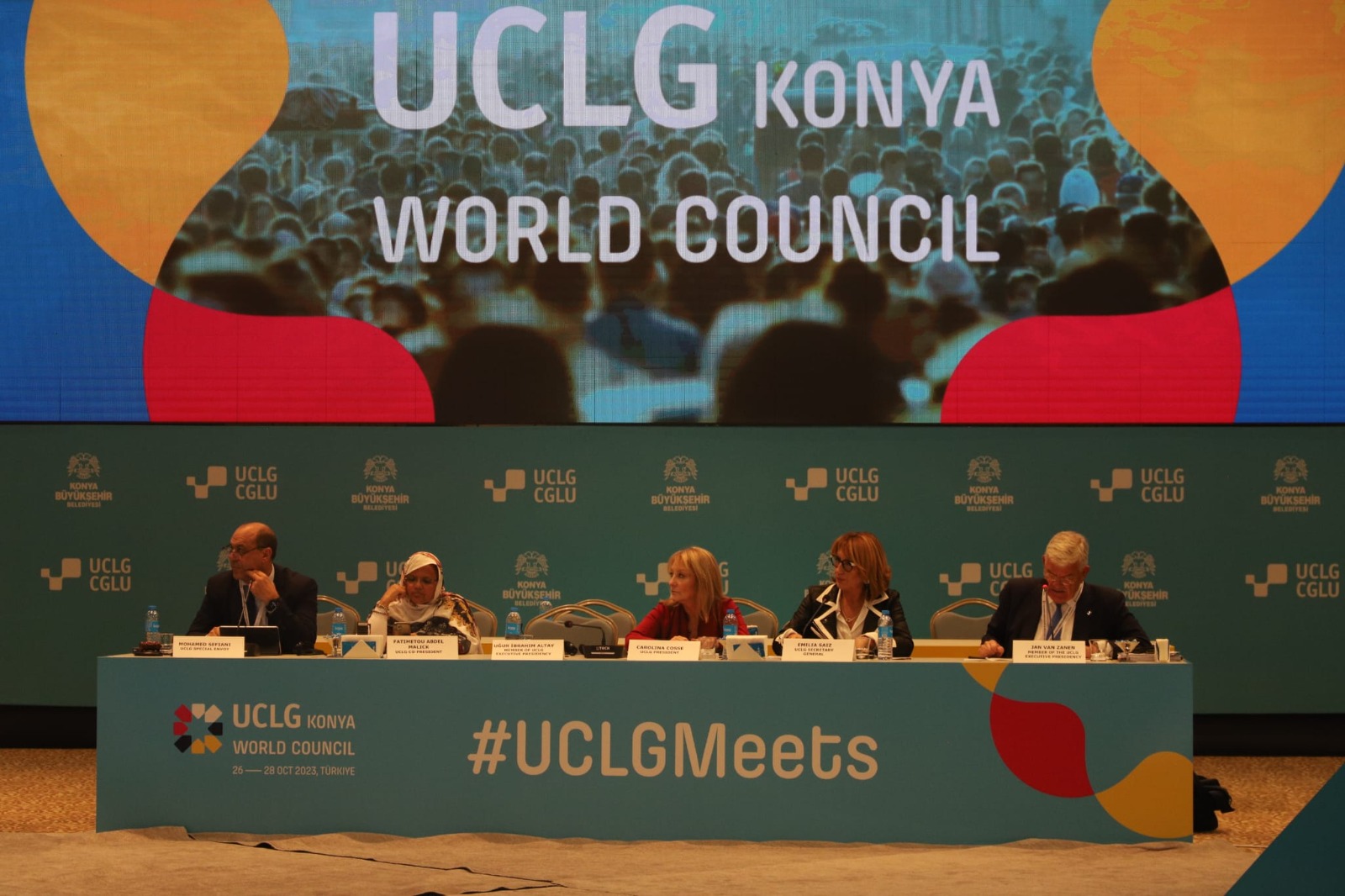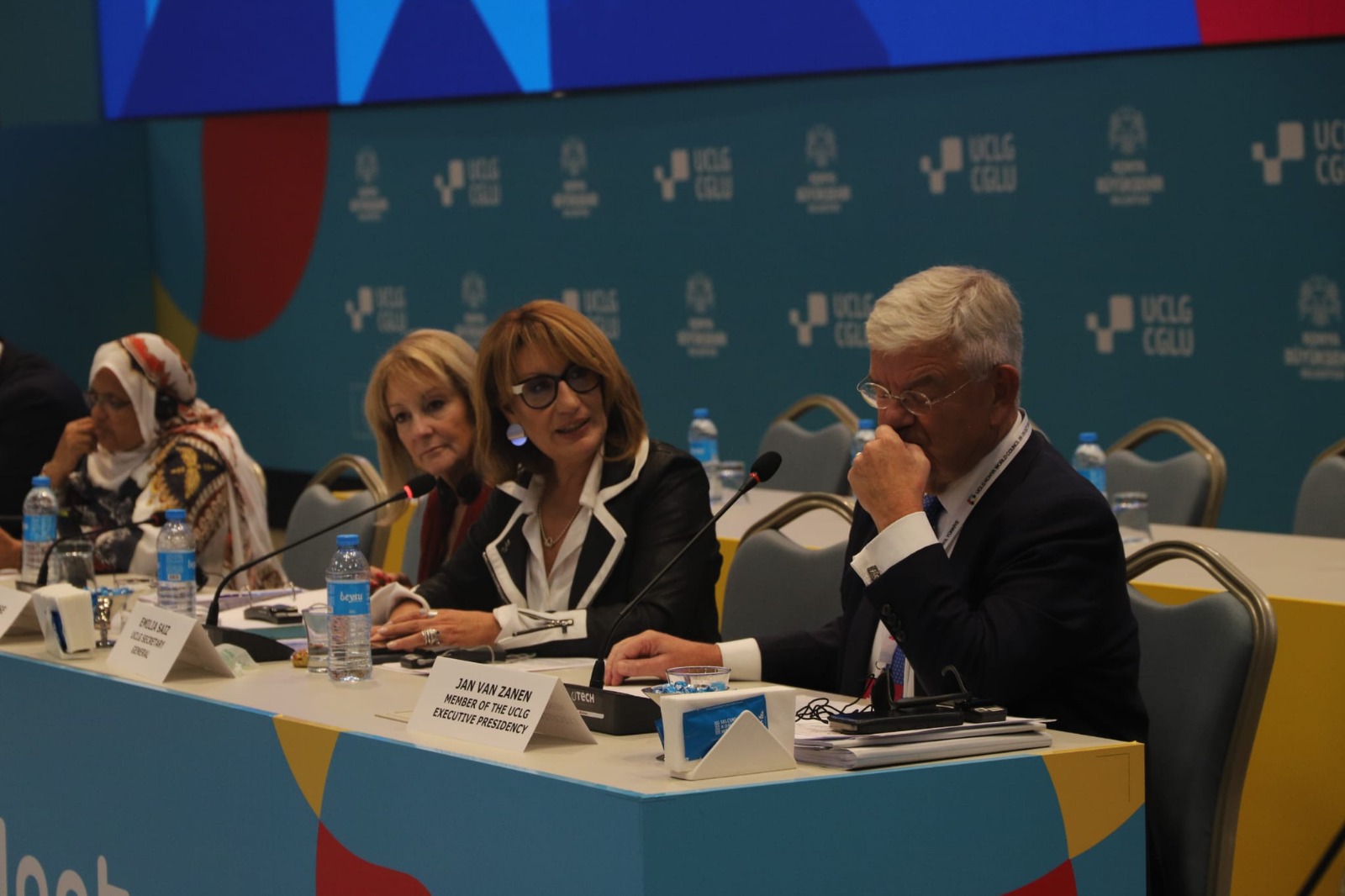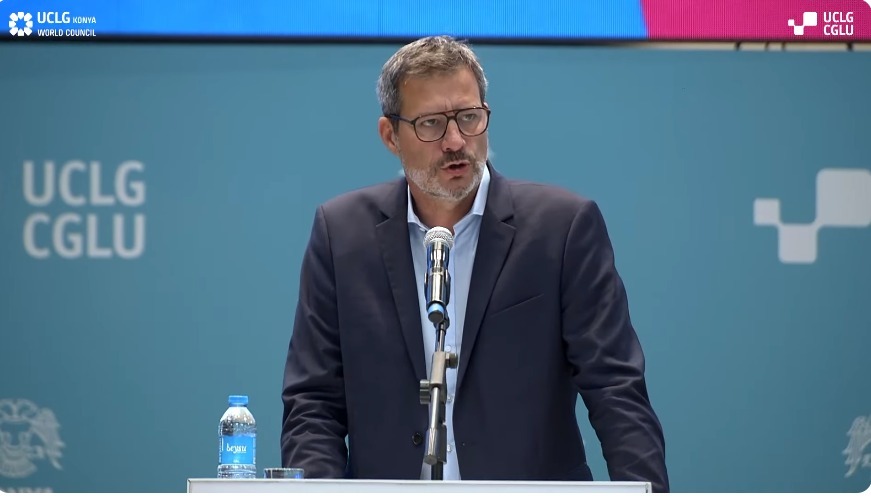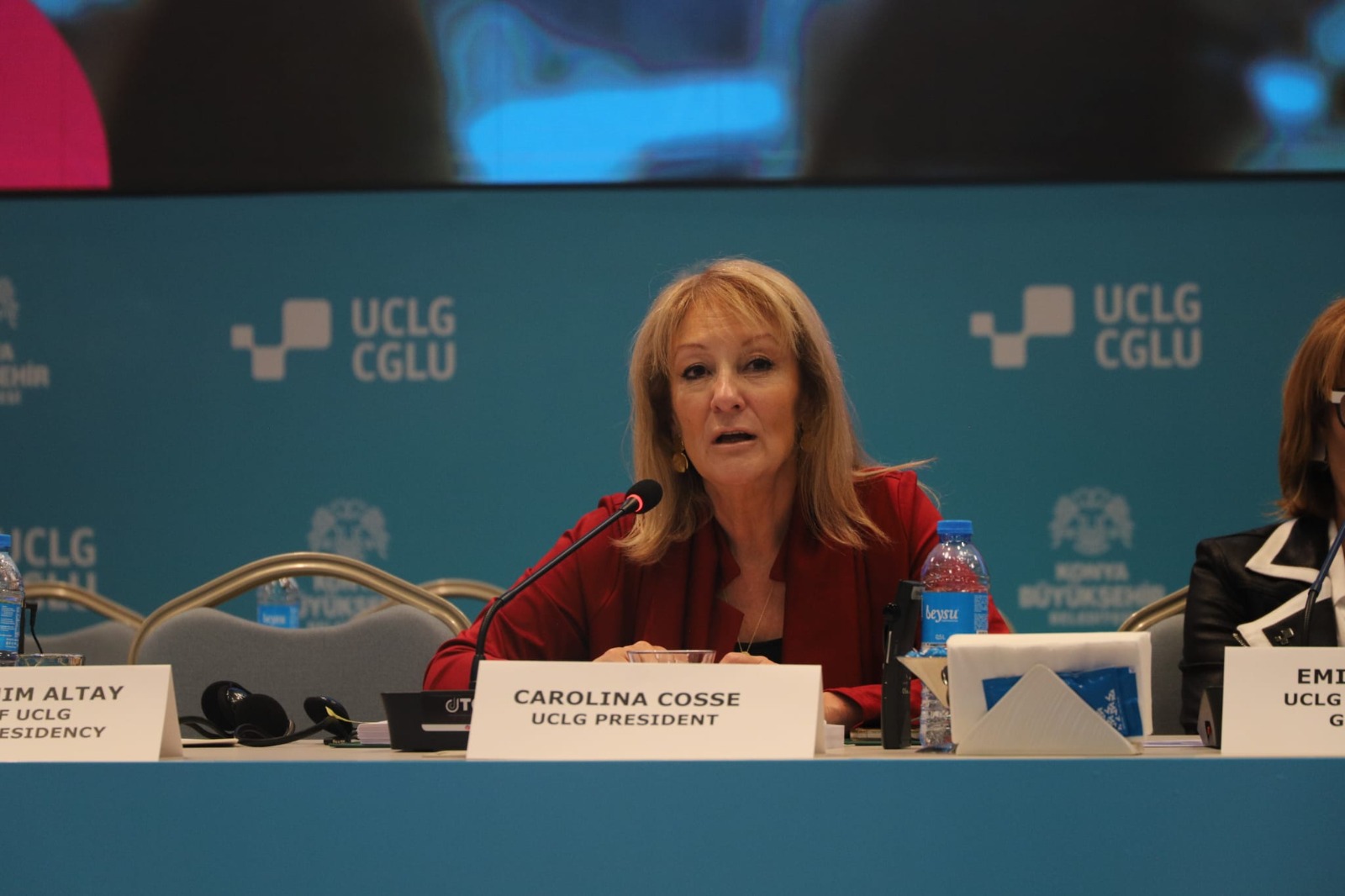Coverage of Policy Debate Opportunities for All: Redefining Finance and Economies of Equality
26.10.2023

Background
The Policy Councils were created in 2017 with the aim of providing an opportunity for political representatives to participate in the Organization’s policymaking and to have their views raised before the UCLG’s governing bodies. They usually meet twice a year in the framework of the UCLG statutory meetings to bring forward initiatives, ideas and recommendations that enrich the policy ownership and the political debate within the Organization.
During its first five years of existence, the Policy Councils introduced significant advances not only in the organization’s narrative – with substantive contributions to our agenda on the Right to the City or the New Urgan Agenda, among others – but also in terms of innovative processes that have been key to the international positioning of the network, such as the UCLG Municipal Peace Talks.

Where we are: The legacy of the Policy Council on Opportunities for All, Culture, and City Diplomacy
In the era of the Pact for the Future – Daejeon Political Declaration, the renewed mandate is setting up the next stage of the UCLG Policy Councils. The session opened with a moment to take stock of the work done by the Policy Council on the Opportunities for All, Culture, and City Diplomacy to envision the ways in which the international system can provide equal opportunities and leave no-one behind, with city diplomacy at the centre. The renewed Policy Council understands that the way to advance in ensuring territorial equality is a rights-based approach to financial decisions, and a complete overhaul to our systems.
Mayor of the Hague and Member of the UCLG Presidency Jan Van Zanen facilitated the session, setting the stage for the new era of the Policy Council. Sergio Arredondo, Secretary General of FLACMA presented the legacy: from the prior work of the Policy Council, to the relationship of the Pact for the Future – Daejeon Political Declaration with the renewed work of the Council.
“The shared aspiration of our organized constituency of local and regional governments to redefine finance and economy builds on our tradition of transformative city diplomacy.” Jan Van Zanen, Mayor of The Hague.

From pact to Act: The Future Envisioning Exercises feeding the priorities of the renewed Policy Council
Anthony Berthelot, Member of the Metropolitan Board of Nantes Métropole presented the renewed priorities of the Policy Council, a brief roadmap that addresses the cross-cutting themes of the management of crises and complex emergencies, redefining the role of communities, collective organization and cooperation, reshaping governance architecture, adopting a feminist, care-based and rights-based approach and promoting people-centred policy-making, all in view of transforming the economic and financial systems.
“We are convinced of the need to renew the entire structure of the international financial system, as it is unable to meet society’s needs. Our global economy is on a path of self-destruction, worsening inequality and exploitation of our planet. Nor is the system sufficiently adapted to the financing methods of local authorities, whether in terms of procedures, rates or ticket sizes”, Anthony Berthelot, Member of the Metropolitan Board of Nantes Métropole
The Policy Council debate included a space for dialogue that built on the Future Envisioning Exercises, which are convened once a year to feed the priorities of the Policy Councils. The Agora segment of the Policy debate included the voices of Yan Jinping, Deputy Director of the Finance Bureau, Xi’an Municipality; Wobine Buijs-Glaudemans, Mayor of Oss Clare Hart, Vice-President Montpellier Méditerranée Métropole; Carolina Cosse, Mayor of Montevideo, UCLG President and Ashok Kumar, Mayor of Dhulikhel, President of UCLG ASPAC.

The session wrapped up with a joint commitment to local actions that can change extractivist relationships between cities and the environment, through models of green growth and de-growth, as well as regenerate the lost and damaged instances of interdependence in the continuum between larger cities, intermediary cities and rural land.